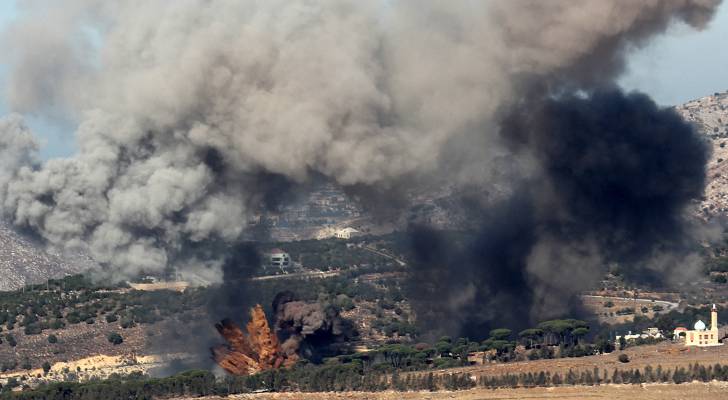Hezbollah, Lebanese army condemn ‘Israeli’ incursion in Blida
Note: AI technology was used to generate this article’s audio.
Tensions flared along Lebanon’s southern border early Thursday, following what both the Lebanese army and Hezbollah described as a “grave and criminal act” carried out by ‘Israeli’ forces in the border town of Blida.
Both parties issued strongly worded statements condemning the incident, which they said involved an ‘Israeli’ ground incursion into Lebanese territory. Hezbollah accused ‘Israeli’ forces of executing a municipal employee, while the Lebanese army urged the international monitoring committee to take immediate action to stop what it called “repeated enemy violations.”
Meanwhile, the ‘Israeli’ army claimed it carried out airstrikes against Hezbollah targets in another area of southern Lebanon, asserting it would continue to “eliminate any threat.”
This is not the first time an 'Israeli' violation of the ceasefire is documented.
Lebanese army: “Violation of sovereignty”
In a statement, the Lebanese Armed Forces denounced the Blida incident as a “criminal act and a violation of Lebanon’s sovereignty and the cessation of hostilities agreement.”
The army rejected what it called “false claims and pretexts” by ‘Israel,’ accusing it of fabricating excuses to justify its ongoing “violations against our country and our people.”
The army said it formally requested that the UN monitoring committee overseeing the cessation of hostilities - typically represented by UNIFIL and the tripartite meetings - take action to investigate and halt the escalation, describing the incident as one of the most serious breaches since recent tensions began.
Hezbollah: “Execution” and US involvement
Hezbollah, in a statement released by its media relations office, accused ‘Israeli’ forces of committing a deliberate “crime” in Blida.
According to Hezbollah’s account:
- Incursion: ‘Israeli’ troops allegedly infiltrated the town of Blida early Thursday.
- Raid: They stormed the municipal building.
- Victim: A municipal employee, identified as Ibrahim Salameh, was “executed in cold blood while asleep in his bed.”
The group described the act as proof of the “enemy’s savage and bloodthirsty nature.”
Hezbollah also linked the incident to recent diplomatic developments, claiming it took place “immediately after the visit of the US envoy to Lebanon and her chairing of mechanism committee meetings.”
The party accused Washington of giving ‘Israel’ the “green light for every escalation and act of aggression,” alleging that the US is “a full partner in this Zionist assault aimed at pressuring Lebanon to implement malicious agendas.”
Calls for national and international action
Hezbollah called for a “unified and firm national stance” in response to the incident, praising the president’s reported call for the army to confront such incursions.
The group urged:
- Support for the army: To provide all necessary resources and political backing.
- Government action: To take “concrete political and diplomatic steps” to stop the attacks.
- International pressure: For the UN Security Council and UNIFIL to assume their responsibilities.
‘Israeli’ army: Strikes on “military infrastructure”
Separately, the ‘Israeli’ army announced it had carried out airstrikes Thursday morning on “military infrastructure and a launch site” belonging to Hezbollah in the town of Mahmoudiyah, southern Lebanon.
The statement made no mention of the Blida incident, but reaffirmed that the army “will continue operating to eliminate any threats.”
Escalation beyond the rules of engagement
The Blida incident, as described by Lebanese authorities, marks a dangerous escalation that appears to break the long-standing “rules of engagement” that have governed the border conflict over the past 11 months.
Unlike previous cross-border exchanges - typically limited to artillery and rocket fire - the alleged ground incursion into a populated area, and the reported killing of a civilian inside a municipal building, represent a significant breach of UN Security Council Resolution 1701.
The incident places additional pressure on the Lebanese government and army to respond beyond diplomatic condemnation, amid growing domestic calls for stronger action.




